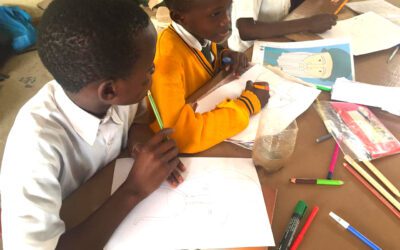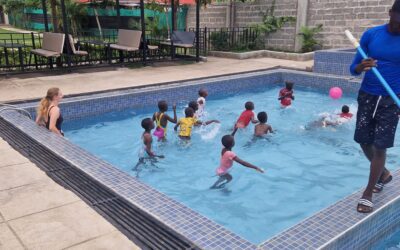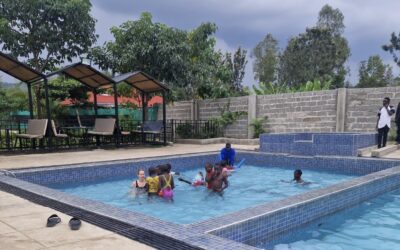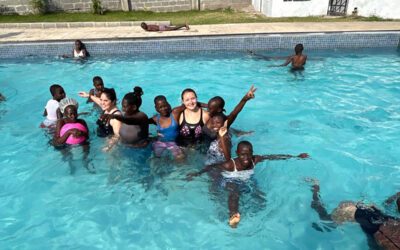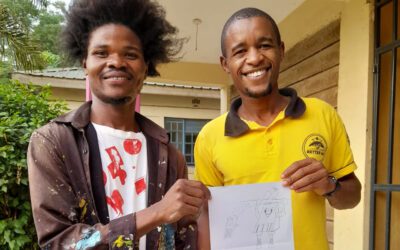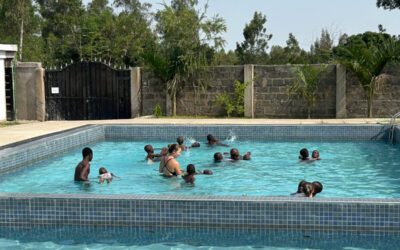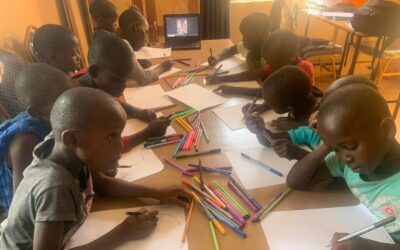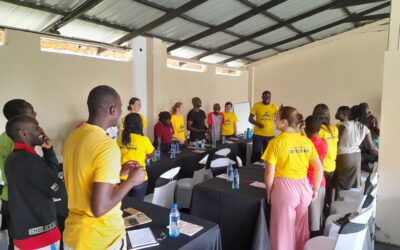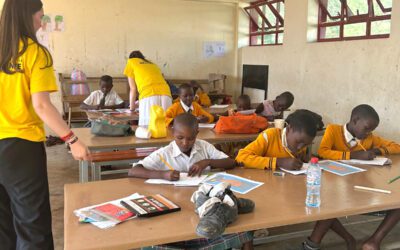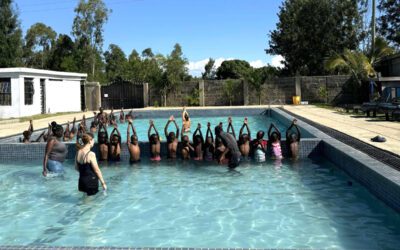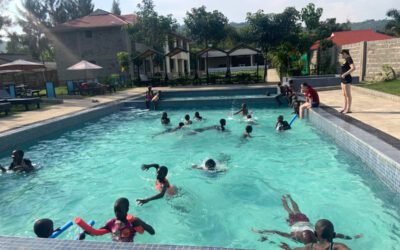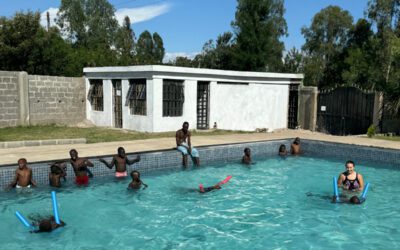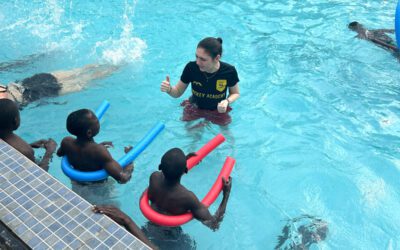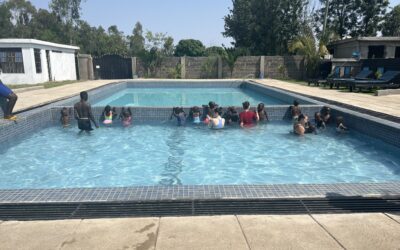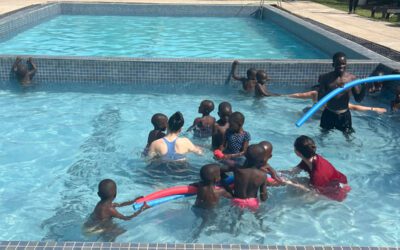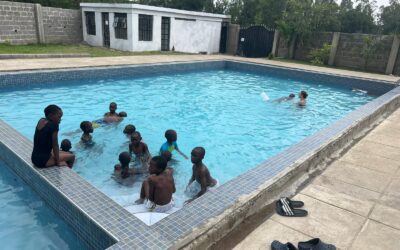 After a few meetings with the headteacher, we managed to get all the kids from class 4th to 8th in the same room. We presented our ideas and asked who would be interested in participating. We got 30 volunteers, which seemed a great number.
It was the tuition week, close to holidays, so we were hoping to get some extra time to practice with them!
From my point of view, theater is not only a form of artistic expression but a great tool to educate in values hard to learn from books and classic lessons. We wanted to encourage our kids to speak up, to be confident, to improve their public speech skills, corporal expression… all of it, together with the possibility to discuss topics that worry them, and that wouldn’t come out in an informal conversation.
After a few meetings with the headteacher, we managed to get all the kids from class 4th to 8th in the same room. We presented our ideas and asked who would be interested in participating. We got 30 volunteers, which seemed a great number.
It was the tuition week, close to holidays, so we were hoping to get some extra time to practice with them!
From my point of view, theater is not only a form of artistic expression but a great tool to educate in values hard to learn from books and classic lessons. We wanted to encourage our kids to speak up, to be confident, to improve their public speech skills, corporal expression… all of it, together with the possibility to discuss topics that worry them, and that wouldn’t come out in an informal conversation.
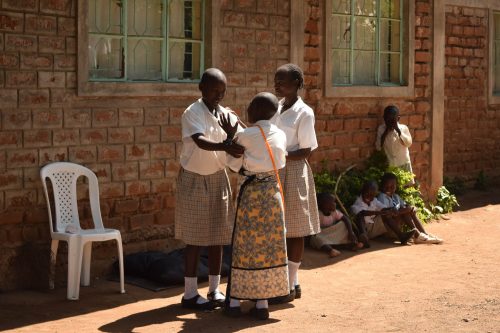 It was not easy; the exercises were a huge challenge for them, and most kids were terrified to stand in front of the others and act at first. But after a few sessions and a lot of laughter everybody relaxed, and we could start working on a play.
We divided the group in two, because 30 children are really a lot of children! I can speak from my experience with my group, from the rewarding experience of seeing how they evolve in just a couple of weeks.
Using theater as an educational tool is relatively easy if you have some basic ideas for group dynamics and corporal expression games. And even if you don’t, there are many online resources that, when approached with an open mind and a bit of creativity, work wonders.
When it came to build a story, asking them was the key. It took a while, but soon they started talking about what worries them. Teenage pregnancy and school drop outs. I have to recognize I was really surprised! And a bit scared. Yes, scared, because I know it is a sensitive topic, and I was still a bit clueless about certain cultural conceptions.
It was not easy; the exercises were a huge challenge for them, and most kids were terrified to stand in front of the others and act at first. But after a few sessions and a lot of laughter everybody relaxed, and we could start working on a play.
We divided the group in two, because 30 children are really a lot of children! I can speak from my experience with my group, from the rewarding experience of seeing how they evolve in just a couple of weeks.
Using theater as an educational tool is relatively easy if you have some basic ideas for group dynamics and corporal expression games. And even if you don’t, there are many online resources that, when approached with an open mind and a bit of creativity, work wonders.
When it came to build a story, asking them was the key. It took a while, but soon they started talking about what worries them. Teenage pregnancy and school drop outs. I have to recognize I was really surprised! And a bit scared. Yes, scared, because I know it is a sensitive topic, and I was still a bit clueless about certain cultural conceptions.
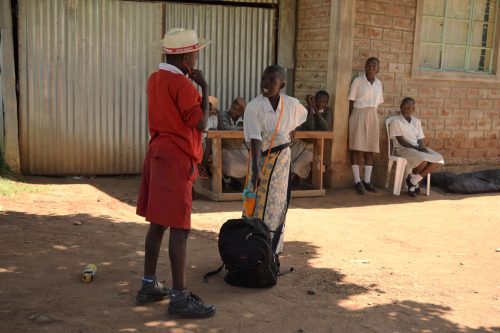 The best part? Being able to ask. We built a story, a few characters, and never wrote a script. They all helped each other to find the lines that fitted better the situation, tried different roles and practiced the different scenes that we would discuss afterwards. Asking them whatever I wouldn’t understand or I wouldn’t be sure of, lead them to discuss why a mom would reject her daughter, why the neighbors wouldn’t act, what would be needed to give a happy ending to the story, how each character would feel or think…
Also seeing how the shyest ones work on their confidence in simple things as adopting certain body posture, or raising their voice so everyone can hear, gave me the motivation to keep pushing on getting enough practice time!
The best part? Being able to ask. We built a story, a few characters, and never wrote a script. They all helped each other to find the lines that fitted better the situation, tried different roles and practiced the different scenes that we would discuss afterwards. Asking them whatever I wouldn’t understand or I wouldn’t be sure of, lead them to discuss why a mom would reject her daughter, why the neighbors wouldn’t act, what would be needed to give a happy ending to the story, how each character would feel or think…
Also seeing how the shyest ones work on their confidence in simple things as adopting certain body posture, or raising their voice so everyone can hear, gave me the motivation to keep pushing on getting enough practice time!
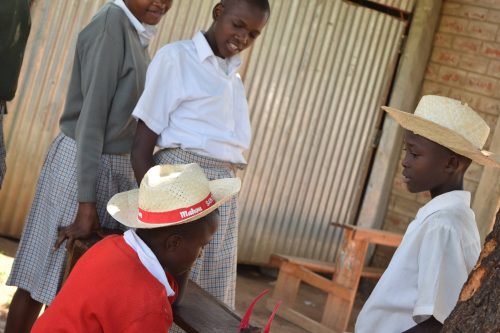 The performance day got postponed a few times, and I think I was more nervous than the kids themselves when the time came. The play took around 20 minutes. Everybody laughed, some almost cried.
By the end, some teachers gave feedback on how happy they were that we finally made it. They were surprised of how some kids have done in such a “out of comfort zone” situation, and how much of a good opportunity to discuss the importance of education, family, community, etc. the play was.
By now, there are two classes working on a theater play. Every time they need me less and less. They all discuss what is going to happen within the story and how they are going to tell it, who is going to play which role, etc. Sometimes they improvise and half of the people on the scene have no clue of what is going on.
The performance day got postponed a few times, and I think I was more nervous than the kids themselves when the time came. The play took around 20 minutes. Everybody laughed, some almost cried.
By the end, some teachers gave feedback on how happy they were that we finally made it. They were surprised of how some kids have done in such a “out of comfort zone” situation, and how much of a good opportunity to discuss the importance of education, family, community, etc. the play was.
By now, there are two classes working on a theater play. Every time they need me less and less. They all discuss what is going to happen within the story and how they are going to tell it, who is going to play which role, etc. Sometimes they improvise and half of the people on the scene have no clue of what is going on.
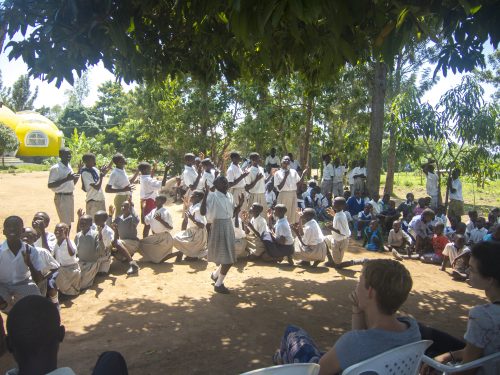
Sometimes, you only need to provide the space and time for magic to happen!


